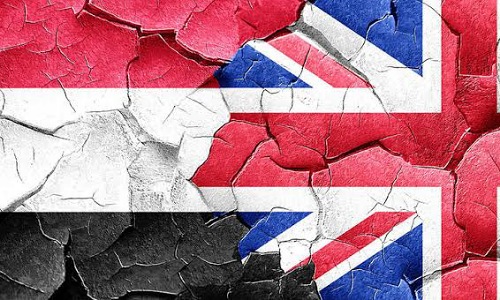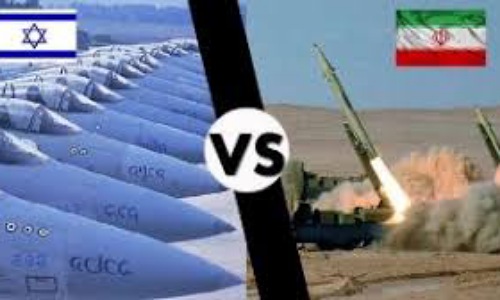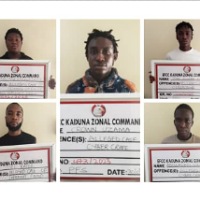International News
Belgian Government Ban Usage Of TikTok On Official Phones
Several European governments have limited TikTok’s usage for their officials, citing concerns that the Beijing government may exploit the video-sharing platform to acquire confidential user information. As a result, the Belgian government has banned TikTok on its official phones.
On Friday, Alexander De Croo, the Prime Minister of Belgium, issued a ban on the usage of TikTok on work phones by federal officials. This move makes Belgium the latest country to take measures against the Chinese application.
A number of national governments in Europe have already restricted TikTok for government employees, over fears the authorities in Beijing could use the video-sharing network to access sensitive user data.
The European Union’s governing institutions also told staff in recent weeks to purge the app from smartphones and laptops used for work purposes.
“We shouldn’t be naive: TikTok is a Chinese business that is currently obliged to cooperate with the Chinese intelligence services,” De Croo said.
“That is the reality.”
The Belgian move — in place for a preliminary six months — follows a risk assessment into potential espionage by the country’s cybersecurity and intelligence agencies.
It does not cover the usage of the video-sharing app on the personal phones of civil servants, ministers, or lawmakers.
Western powers, including the European Union and the United States, have been taking an increasingly tough approach to the app, which is owned by Chinese company ByteDance.
On Wednesday, TikTok initiated a new effort to ease concerns about security in Europe by stating that the firm is collaborating with a third-party European security company to monitor and verify how it manages data. Starting in 2023, TikTok confirms that European user data will be housed in two Dublin-based centers and one in Norway.
International News
I Won’t Resign, Says Spain’s PM
Prime Minister Pedro Sanchez of Spain has officially announced that he will not be resigning, bringing an end to a period of intense political speculation.
His declaration, made during a public address on Monday, follows days of uncertainty surrounding his tenure.
Earlier reports had hinted at Sanchez’s potential resignation amidst ongoing investigations into his wife, Begona Gomez’s alleged involvement in influence peddling and corruption.
However, Sanchez clarified that his contemplation of resignation was not driven by political strategy but rather by concerns over growing polarization and the dissemination of deliberate misinformation within the political landscape.
Sanchez passionately addressed the need to combat the degradation of public discourse, stating, “For too long, we’ve allowed toxic methods to corrupt our political and public life, methods that were unthinkable just a few years ago… Do we truly desire this for Spain?”
He emphasized his conviction, declaring, “I have acted with a clear determination: either we declare ‘enough is enough’ or allow this deterioration of public life to shape our future and condemn our nation.”
Sanchez’s choice to remain in office was significantly influenced by a strong demonstration of support at the Socialist Party’s headquarters in Madrid, where enthusiastic supporters passionately chanted, “Pedro, stay!” This outpouring of solidarity occurred shortly after the public prosecutor’s office recommended closing the investigation into Gomez.
Sanchez’s reaffirmation of his leadership role comes at a pivotal juncture as he gears up to guide his party through the upcoming regional elections in Catalonia on May 12.
The Socialists are poised to contest against the pro-independence factions currently holding sway, underscoring the significance of his continued leadership.
International News
UK Imposes Sanctions On Businesses Linked To Sudan Conflict

Britain has taken a decisive stance against the escalating conflict in Sudan by announcing sanctions targeting businesses associated with the warring factions.
Since the outbreak of fighting between rival generals on April 15 last year, the situation has deteriorated drastically, resulting in thousands of casualties and forcing approximately 1.8 million people to seek refuge in neighboring countries.
Aid workers on the ground have painted a grim picture of the humanitarian catastrophe unfolding in the country, with civilians enduring starvation, sexual violence, ethnic killings, and executions.
The UK’s Foreign Office has underscored the severity of the situation, emphasizing that “strict measures” will be implemented, including asset freezes on companies with ties to the Sudanese Armed Forces (SAF) and its rival, the paramilitary Rapid Support Forces (RSF).
British foreign minister David CameronCameron said “We continue to see appalling atrocities against civilians, unacceptable restrictions on humanitarian access and an utter disregard for civilian life.
“The businesses that support the warring parties must be held to account, alongside those responsible for human rights abuses. The world must not forget about Sudan. We urgently need to end the violence.
The sanctions target specific entities, including Alkhaleej Bank, implicated in financing the RSF, and Al-Fakher Advanced Works, a holding company facilitating gold exports for the organization, with proceeds funnelled into weapons acquisition.
Additionally, Red Rock Mining, known for providing funds to the SAF, faces sanctions. The company’s close ties to Defence Industries System, the economic and manufacturing arm of the SAF, further solidify its inclusion in the sanctions, as stated by the Foreign Office.
France, currently hosting an international conference on Sudan, is urging for aid contributions and heightened global attention to address what officials describe as a crisis overshadowed by ongoing conflicts in Ukraine and Gaza.
Will Carter, Sudan country director for the Norwegian Refugee Council, emphasized the dire conditions faced by civilians in the region, including starvation, widespread sexual violence, ethnic massacres, and executions.
According to the UN, over 8.5 million people have been displaced since the onset of the conflict.
The World Health Organization has issued warnings about the country’s collapsing health system, citing acute shortages of medical staff and essential medicines as pressing concerns.
International News
JUST IN: Iran Summons 3 European Ambassadors Over Israel Attack

In response to what it perceives as undue criticism from officials in France, Britain, and Germany, Iran summoned their respective ambassadors to Tehran on Sunday.
The move comes in the wake of Iran’s recent missile and drone strike on Israel.
According to the official IRNA news agency, the Iranian Ministry of Foreign Affairs cited “irresponsible positions” from certain officials in these countries regarding Iran’s retaliation against perceived Israeli provocations impacting Iranian citizens and interests.
The Agency said, “The British, French, and German ambassadors to Tehran were summoned to the Ministry of Foreign Affairs following the irresponsible positions of certain officials of these countries regarding Iran’s response to the actions of the Zionist regime (Israel) against the nationals and interests of our country.”
More to follow…….















